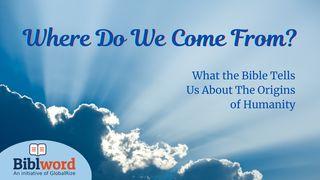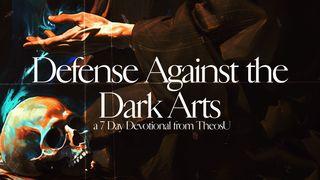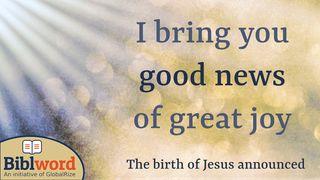Prayer: A 14-Day Devotional By Tim KellerSample

Ephesians 1:15–19
It is remarkable that in all of his writings Paul’s prayers for his friends contain no appeals for changes in their circumstances. It is certain that they lived in the midst of many dangers and hardships. They faced persecution, death from disease, oppression by powerful forces, and separation from loved ones. Their existence was far less secure than ours is today. Yet in these prayers you see not one petition for a better emperor, for protection from marauding armies, or even for bread for the next meal. Paul does not pray for the goods we would usually have near the top of our lists of requests.
Does that mean it would have been wrong to pray for such things? Not at all. As Paul knew, Jesus himself invites us to ask for our “daily bread” and that God would “deliver us from evil.” In 1 Timothy 2, Paul directs his readers to pray for peace, for good government, and for the needs of the world. In his own prayers, then, Paul is not giving us a universal model for prayer in the same way Jesus did. Rather, in them he reveals what he asked most frequently for his friends—what he believed was the most important thing God could give them.
What is that? It is—to know him better. Paul explains this with color and detail. It means having the “eyes of their hearts . . . enlightened”(Ephesians 1:18). Biblically, the heart is the control center of the entire self. It is the repository of one’s core commitments, deepest loves, and most foundational hopes that control our feeling, thinking, and behavior. To have the “eyes of the heart enlightened” with a particular truth means to have it penetrate and grip us so deeply that it changes the whole person. In other words, we may know that God is holy, but when our hearts’ eyes are enlightened to that truth, then we not only understand it cognitively, but emotionally we find God’s holiness wondrous and beautiful, and volitionally we avoid attitudes and behavior that would displease or dishonor him. In Ephesians 3:18, Paul says he wants the Spirit to give them “power . . . to grasp” all the past, present, and future benefits they received when they believed in Christ. Of course, all Christians know about these benefits in their minds, but the prayer is for something beyond that—it is to have a more vivid sense of the reality of God’s presence and of shared life with him.
Excerpt from PRAYER by Timothy Keller
Reprinted by arrangement with DUTTON, a member of Penguin Group (USA) LLC, A Penguin Random House Company. Copyright © 2014 by Timothy Keller
It is remarkable that in all of his writings Paul’s prayers for his friends contain no appeals for changes in their circumstances. It is certain that they lived in the midst of many dangers and hardships. They faced persecution, death from disease, oppression by powerful forces, and separation from loved ones. Their existence was far less secure than ours is today. Yet in these prayers you see not one petition for a better emperor, for protection from marauding armies, or even for bread for the next meal. Paul does not pray for the goods we would usually have near the top of our lists of requests.
Does that mean it would have been wrong to pray for such things? Not at all. As Paul knew, Jesus himself invites us to ask for our “daily bread” and that God would “deliver us from evil.” In 1 Timothy 2, Paul directs his readers to pray for peace, for good government, and for the needs of the world. In his own prayers, then, Paul is not giving us a universal model for prayer in the same way Jesus did. Rather, in them he reveals what he asked most frequently for his friends—what he believed was the most important thing God could give them.
What is that? It is—to know him better. Paul explains this with color and detail. It means having the “eyes of their hearts . . . enlightened”(Ephesians 1:18). Biblically, the heart is the control center of the entire self. It is the repository of one’s core commitments, deepest loves, and most foundational hopes that control our feeling, thinking, and behavior. To have the “eyes of the heart enlightened” with a particular truth means to have it penetrate and grip us so deeply that it changes the whole person. In other words, we may know that God is holy, but when our hearts’ eyes are enlightened to that truth, then we not only understand it cognitively, but emotionally we find God’s holiness wondrous and beautiful, and volitionally we avoid attitudes and behavior that would displease or dishonor him. In Ephesians 3:18, Paul says he wants the Spirit to give them “power . . . to grasp” all the past, present, and future benefits they received when they believed in Christ. Of course, all Christians know about these benefits in their minds, but the prayer is for something beyond that—it is to have a more vivid sense of the reality of God’s presence and of shared life with him.
Excerpt from PRAYER by Timothy Keller
Reprinted by arrangement with DUTTON, a member of Penguin Group (USA) LLC, A Penguin Random House Company. Copyright © 2014 by Timothy Keller
About this Plan

New York Times bestselling author and renowned pastor Timothy Keller explores the power of prayer, and how readers can make prayers more personal and powerful, forging a deeper connection with God.
More
Related plans

Where Do We Come From?

Hope for the Holidays

Hope in the Midst of Chaos: Devotions for Teen Mothers

The Comeback Part 1

Thriving Through the Holidays: 5 Days of Hope for the Military Wife This Christmas

Led by the Spirit: Journey Through the Book of Acts Part 1

Abide, Adore, Ask and Agree: 21 Days of Prayer and Fasting With Rock City Church

Defense Against the Dark Arts

Advent: Join the Triumph
